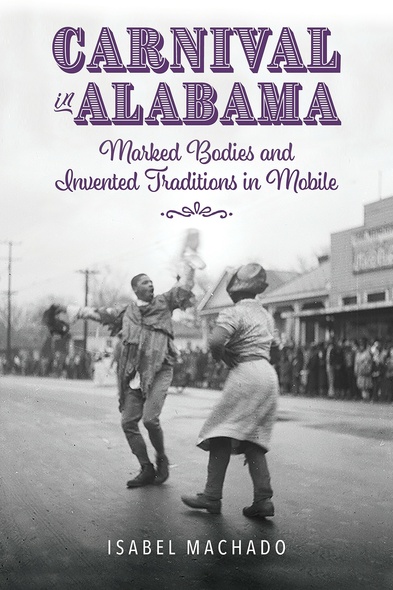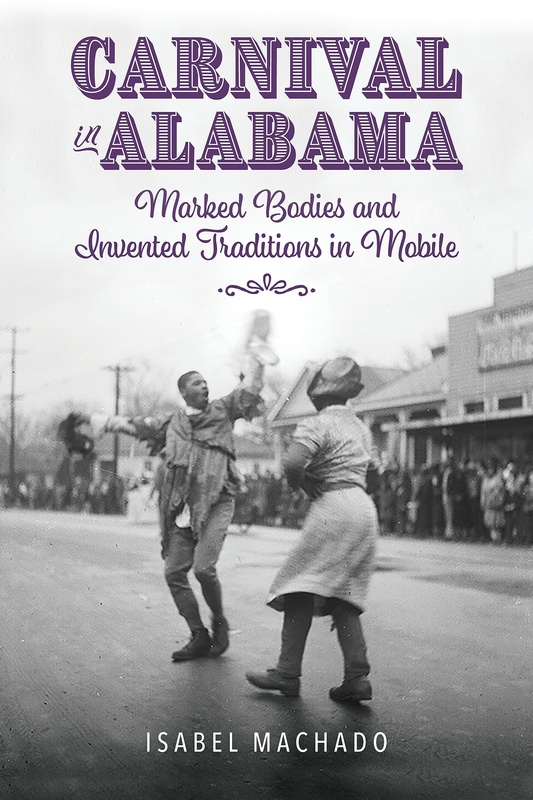
Carnival in Alabama
Marked Bodies and Invented Traditions in Mobile
Mobile is simultaneously a typical and unique city in the postwar United States. It was a quintessential boomtown during World War II. That prosperity was followed by a period of rapid urban decline and subsequent attempts at revitalizing (or gentrifying) its downtown area. As in many other US cities, urban renewal, integration, and other socioeconomic developments led to white flight, marginalized the African American population, and set the stage for the development of LGBTQ+ community building and subculture. Yet these usually segregated segments of society in Mobile converged once a year to create a common identity, that of a Carnival City.
Carnival in Alabama looks not only at the people who participated in Mardi Gras organizations divided by race, gender, and/or sexual orientation, but also investigates the experience of “marked bodies” outside of these organizations, or people involved in Carnival through their labor or as audiences (or publics) of the spectacle. It also expands the definition of Mobile’s Carnival “tradition” beyond the official pageantry by including street maskers and laborers and neighborhood cookouts.
Using archival sources and oral history interviews to investigate and analyze the roles assigned, inaccessible to, or claimed and appropriated by straight-identified African American men and women and people who defied gender and sexuality normativity in the festivities (regardless of their racial identity), this book illuminates power dynamics through culture and ritual. By looking at Carnival as an “invented tradition” and as a semiotic system associated with discourses of power, it joins a transnational conversation about the phenomenon.
This erudite work is recommended for anyone interested in local Southern lore, the mythology of Carnival, or reckoning with the racial and homophobic prejudice and violence of the past.
Machado’s research is solid and deep. . . . Unlike some other writers, she has neither glorified nor distorted the past.
I loved this book as both a social/cultural history and as a work of festival studies. Machado rejects any easy dismissal of this Gulf Coast city or its people and expertly illuminates the historical processes and operations of race, class, and gender in Mobile’s Mardi Gras history.
Machado’s focus on LGBTQ+ and African American engagement in the Mobile Mardi Gras celebration is fascinating and underexplored in other studies.
Carnival in Alabama makes a transformative contribution to the historiography of Mobile’s Mardi Gras, and an indispensable addition to the growing body of scholarship on Carnival traditions throughout the United States.
Isabel Machado specializes in the fields of gender and sexuality studies and celebration studies, focusing more specifically on carnivals and drag competitions. She has published articles in Oral History Journal, Journal of Festive Studies, O Olho da História,and Study the South.




